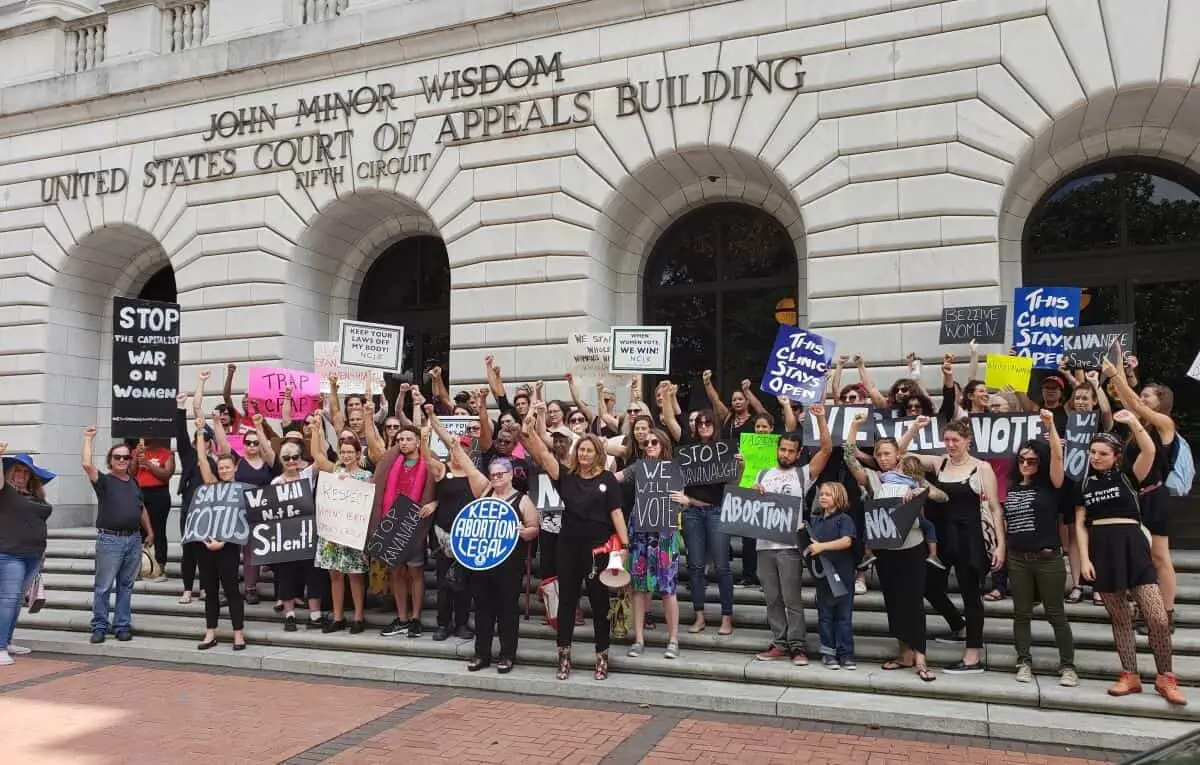Two doctors from Louisiana requested for a stay for the abortion law from the U.S. Supreme Court. They say that the law could cripple the access to abortion in the state. The law requires doctors who are about to perform the abortion to have admitting privileges at a hospital within 30 miles of their clinic, which means that it would potentially leave only one doctor in a single clinic to provide abortions in a state where about 10,000 women seek the procedure each year.
The application was submitted to Justice Samuel Alito and is expected to be reviewed by the full court. The unnamed physicians, represented by the Center for Reproductive Rights requested the court to prevent the law from going into effect since it is planned to go for trial next week. Alito gave the state of Louisiana two days to respond to the application. This case could prove to be a test for the President Donald Trump’s Nominee to the high court
In a similar law that was enacted in the state of Texas in 2016, it was ruled 5-3. This case was decided before Justices Brett Kavanaugh and Neil Gorsuch and was confirmed to the bench.
The law states that for an emergency stay to be sanctioned, five justices are required. If the full court joins and acts on the matter, so then at least one of the court’s five conservatives must join the liberal wing for the order to prevent the Louisiana law from being established.
This application follows the decision from a divided panel of the United States 5th Circuit Court of Appeals, which found that Whole Women’s Health does not preclude the Louisiana law “unlike in Texas, the Louisiana law does not impose a substantial burden on a large fraction of women.”
In Texas, the panel concluded that almost all hospitals require a doctor to admit a minimum number of patients, to retain the admitting privileges. On the contrast in Louisiana, only a few numbers of hospitals have the same requirement. Judge Jerry Smith also wrote that the panel’s majority opinion reasoned that driving distances will not increase the number of women seeking abortions and that only 30 percent of women seeking abortions might be affected.
Smith wrote, “we are of course bound by WWH’s holdings, announced in a case with a substantially similar statute but greatly dissimilar facts and geography.”
In a disagreement, Judge Patrick Higginbotham criticized the majority stating “conclusions for which there is no support in the record” and also for rejecting “the district court’s well-supported findings.” Higginbotham also challenged the motive of the majority, hinting that there could be an alternative motive.
Suggesting a possible political intention, Higginbotham wrote: “In the absence of fit between the means requiring admitting privileges and the ends ensuring women’s health, I am left to conclude that, viewed objectively, there is an invidious purpose at play.” Another statement made by Center for Reproductive Rights CEO Nancy Northup said the law “could be the last straw for the few remaining clinics.” She also said that “Less than three years ago, the Supreme Court struck down an identical law in Texas, holding that it served no purpose other than to restrict access to safe and legal abortion. The Fifth Circuit has brazenly ignored this precedent squarely on point.”
Planned Parenthood also weighed in. “When courts blatantly disregard established Supreme Court precedent, every person’s rights and freedoms are threatened,” Helene Krasnoff, Planned Parenthood’s vice president of public policy litigation and law, said in a statement. “We stand by our partners at the Center for Reproductive Rights in their fight to get emergency relief for Louisiana patients. The unconstitutional nature of this law has been and should continue to be a foregone conclusion.”
